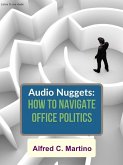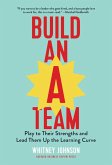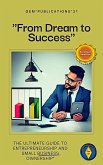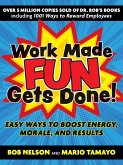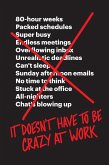This work emerged from a lifetime of experience assisting organizations, teams, and individuals with finding inventive ways to solve problems more rapidly. As you move from country to country and culture to culture in search of inventive solutions to problems that are more common than one would ever imagine, you begin to notice several patterns emerge that reduce some of the mystery that shrouds the nature and character of human relationships including: How we form them; how we manage them; how we end them, and how we overcome them. This is the stuff of life. Life is relationship living.
Life is Relationship. For good or bad, from hope to hopelessness, from self-doubt to confidence, from Ego to Self-Esteem, and from life to death, I would tell you that human life is formed, nourished, developed, enjoyed, and even made miserable through relationship, from birth to death. From the day you meet your mother to the day you meet your undertaker, you pass through life in relationship. How you manage your relationships says everything about how you will become a fully human person imbued with the capacity for living a life of significance. We are creatures with the capacity to reason well, true; but human life is considerably more emotional than rational.
Rationality is a power we possess to navigate life on a material planet. However, we feel more than we think. We use reason occasionally to assist in decision-making, but use our emotions most often to navigate the experiences of our lives. Think about this: Reason concerns the rules of logic, but emotion flows from the values we hold dear. Emotions represent value judgments, and reason represents logical conclusions, if-then-else. The decisions we make based on value judgements often conflict with the decisions we conclude from deduction or induction. This is how human life is lived on planet earth. Other places, I am not so sure. All of my life, I have been told that the power of reason makes us human. We are the "rational animal". I guess, then, some people are more human than others. Does this make the artist less human than the scientist? Or, are we speaking about the human potential for rational thought so that the scientist is actually a human being and the artist is potentially a human being? Moreover, the claim that human beings are "rational animals" is rather simplistic because human beings are more than animals, as Aristotle suggested. Although we do have the powers that animals share such as reproduction, self-mobility, growth, and so forth, we enjoy powers beyond those of brute animals like spiritual development, cultivation of virtue, and creative powers of the imagination. An animal has body, like a rock has material volume occupying space, but an animal is not a rock. A rock requires transitive motion through an external agent to move it, while an animal enjoys imminent motion from within to move itself. So an animal enjoys the powers of a rock in having existence and a body, but exceeds rocks with its own many powers not enjoyed by rocks. In like manner, human beings possess powers not enjoyed by animals. Human beings are, in fact, beings governed by conscience and the Cardinal Virtues. While we do not call animals "self-moving rocks", we really ought not to call human beings "rational animals". We are considerable more than that. The problem for human beings here is one of reconciling the emotional powers with the rational powers. It is more than a matter of being "rational animals or "emotional animals". Being more than rational animals who enjoy the power of emotional judgment, the question persists: What kind of creature are we if not a rational animal? We are emotional beings who have access to reason as our emotions flow from our values..
Life is Relationship. For good or bad, from hope to hopelessness, from self-doubt to confidence, from Ego to Self-Esteem, and from life to death, I would tell you that human life is formed, nourished, developed, enjoyed, and even made miserable through relationship, from birth to death. From the day you meet your mother to the day you meet your undertaker, you pass through life in relationship. How you manage your relationships says everything about how you will become a fully human person imbued with the capacity for living a life of significance. We are creatures with the capacity to reason well, true; but human life is considerably more emotional than rational.
Rationality is a power we possess to navigate life on a material planet. However, we feel more than we think. We use reason occasionally to assist in decision-making, but use our emotions most often to navigate the experiences of our lives. Think about this: Reason concerns the rules of logic, but emotion flows from the values we hold dear. Emotions represent value judgments, and reason represents logical conclusions, if-then-else. The decisions we make based on value judgements often conflict with the decisions we conclude from deduction or induction. This is how human life is lived on planet earth. Other places, I am not so sure. All of my life, I have been told that the power of reason makes us human. We are the "rational animal". I guess, then, some people are more human than others. Does this make the artist less human than the scientist? Or, are we speaking about the human potential for rational thought so that the scientist is actually a human being and the artist is potentially a human being? Moreover, the claim that human beings are "rational animals" is rather simplistic because human beings are more than animals, as Aristotle suggested. Although we do have the powers that animals share such as reproduction, self-mobility, growth, and so forth, we enjoy powers beyond those of brute animals like spiritual development, cultivation of virtue, and creative powers of the imagination. An animal has body, like a rock has material volume occupying space, but an animal is not a rock. A rock requires transitive motion through an external agent to move it, while an animal enjoys imminent motion from within to move itself. So an animal enjoys the powers of a rock in having existence and a body, but exceeds rocks with its own many powers not enjoyed by rocks. In like manner, human beings possess powers not enjoyed by animals. Human beings are, in fact, beings governed by conscience and the Cardinal Virtues. While we do not call animals "self-moving rocks", we really ought not to call human beings "rational animals". We are considerable more than that. The problem for human beings here is one of reconciling the emotional powers with the rational powers. It is more than a matter of being "rational animals or "emotional animals". Being more than rational animals who enjoy the power of emotional judgment, the question persists: What kind of creature are we if not a rational animal? We are emotional beings who have access to reason as our emotions flow from our values..
Dieser Download kann aus rechtlichen Gründen nur mit Rechnungsadresse in A, B, CY, CZ, D, DK, EW, E, FIN, F, GR, H, IRL, I, LT, L, LR, M, NL, PL, P, R, S, SLO, SK ausgeliefert werden.



